Centre for Holistic Education, Training and Novel Advancements (CHETNA)
A quality education should prepare an individual to face the challenges of the world. Learning is no longer just about the acquisition of facts and knowledge; it needs to be applied to real-world situations with an understanding of consequences outside the learning environment. An education system that encompasses a well-rounded, balanced education is one that produces active and productive global citizens who are globally-aware and engaged 21st century citizens. For this to occur, students need opportunities to develop not just the knowledge, but the skills, mindset, and moral standards required for a successful professional and personal life. This mission calls for the provision of a holistic education; one concerned with the growth of a student’s intellectual, emotional, social, physical, artistic, creative and spiritual potentials, and which is in tune with each child’s unique needs and expertise. It actively engages students in the teaching and learning process, encouraging personal growth and collective responsibility.
Providing a secure environment in which students can explore their intrinsic potential is essential in the delivery of holistic education. By providing this we can enlighten the students to innate skills, letting them dedicate time to areas in which they are truly passionate. The advantages of this can be felt throughout the person’s life as they gain a self-actualisation that instils confidence and self-worth.
Education doesn’t have to be boring, it can be a rich, experiential journey of discovery and expression, where all students and teachers grow together. It should be an inquiry-driven, interdisciplinary and integrated experience that takes into consideration all aspects of child development. In holistic education, there are no deficits in learners, only differences. The NEP 2020 describes the aim of holistic and multidisciplinary education as ‘development of all capacities of human beings -intellectual, aesthetic, social, physical, emotional, and moral in an integrated manner’.
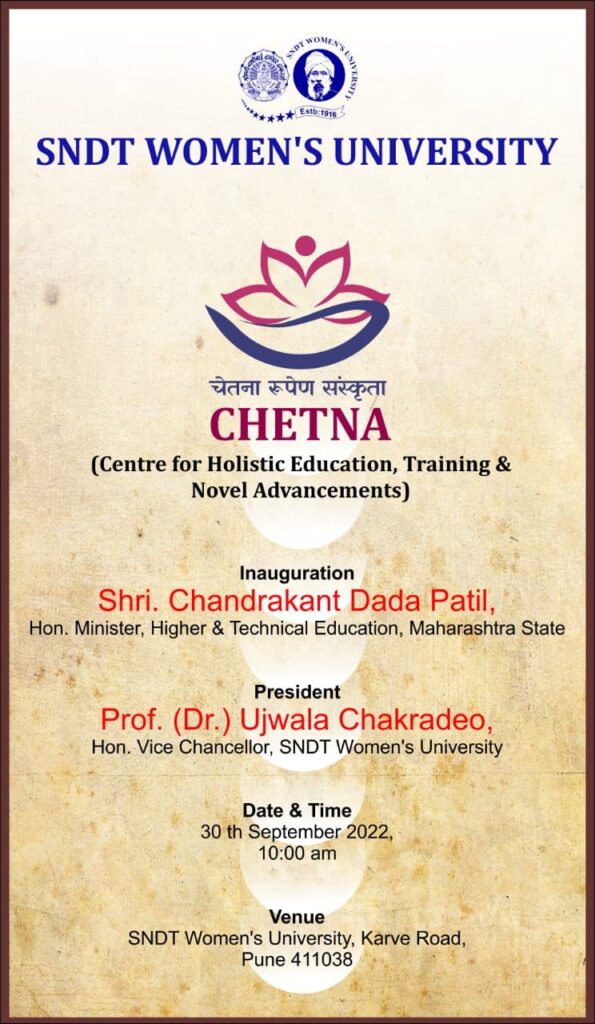
About
A pioneering institution established in 1974, the Research Centre for Women’s Studies (RCWS) is the largest and oldest of its kind in India. Its contribution to the development of Women’s Studies is widely recognized both nationally and internationally. Since its inception, the RCWS has undertaken several research projects with generous grants from national and international donor agencies, with a very broad-based research focus which has led to theoretical studies (some of which have had policy implications) and action based projects. It has also contributed to the development of Women’s Studies curriculum and training manuals. It has a well-established publications programme, including a quarterly newsletter; and it reaches out into the larger community through its regular seminar series and networking programmes. It was in recognition of its contribution to the development of Women’s Studies (specifically in research, curriculum and faculty development programmes) that the University Grants Commission (UGC) identified the RCWS as a centre of excellence during (the 9th Plan period) with the mandate of providing the necessary leadership for the development of Women’s Studies. The RCWS envisages its role as a catalyst of social change; the various components of the programme, namely research, teaching, community development, networking and dissemination are not seek as separate, but rather as inter-linked components of a cohesive whole. Drawing from each other these various components will enrich the entire programme and initiate a process of change. The target group of these multi-pronged interventions is women at the grassroots, activists, students of Women Studies and other disciplines, policy makers and others. The RCWS motto is “Change and Challenge”.
Motto
“Change and Challenge”
About Chetna
About
Centre for Holistic Education, Training and Novel Advancements (CHETNA)
The Centre for Holistic Education, Training and Novel Advancements (SNDTWU-CHETNA) is a center established by SNDTWU to develop and create a pool of need-based, Value-based, skill-based capacity-building add-on courses in collaboration with local, national, and international institutions. It will provide courses and programs to build character through human and constitutional values also, develop life skills, employability skills, and 21st-century skills that are required for betterment of the society, environment and the whole ecosystem. The center aims to act as a bridge between our past; the culture and the technological and social advancements in the future by introducing programs based on our culture and heritage for a sustainable future. The center aims to provide an environment to enhance the creativity of students by providing novel and unusual programs. The name ‘SNDTWU-CHETNA’ means ‘Consciousness’ which is the very essence of life.
Objectives
Introduce integrated and engaging programs through national-international collaborations
Initiate innovations through creative combinations of disciplines
Cultivate in students, the curiosity, the skills and the knowledge for lifelong success
Develop in students, the integrity and the commitment for the growth of a sustainable society
Equip the students with values and skills for personal and professional excellence
Facilitate the flexibility in curriculum, teaching learning and hands-on training
Attract, develop and retain talented faculty, staff and students
Vision
Nurture the intrinsic capabilities of students through Unity and integrity of all knowledge
Mission
Provide conducive environment for development of capacities of students in an integrated manner for sustainable future of the humanity.
Message of Vice-chancellor
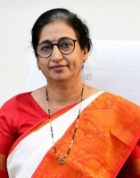
Prof. Ujwala Chakradeo
Vice Chancellor, SNDTWU
I am delighted to present the SNDTWU-CHETNA function policy on developing a pool of need- based, value-based, skill-based capacity-building add-on courses in collaboration with local, national, and international institutions and make them available to students under one umbrella.
SNDT Women’s University, Mumbai is one of the frontrunners in adopting novel educational trends. The National Education Policy (NEP 2020) is a thoughtfully planned guiding document introduced to change the face of education in India. For the effective implementation of the National Education Policy 2020 as well as to meet the needs of the 21st century, SNDT Women’s University has established the Centre for Holistic Education, Training and Novel Advancements (SNDTWU-CHETNA). It will provide courses and programs to build character through human and constitutional values and also, develop life skills, employability skills, and 21st-century skills required for the betterment of society, the environment, and the whole ecosystem. The center will develop a culture of collaboration with greater autonomy, flexibility, access, and choice for the holistic development of learners and novel advancement in research, curriculum, teaching- learning, assessment, educational resources, and community outreach. SNDT-CHETNA has been established for providing facility to students for their holistic development through variety of short-term courses.
I congratulate Principal Nalini Patil, Director of CHETNA, Professor Sachin Deore, Coordinator of CHETNA, and all campus coordinators who have worked tirelessly to conceptualize and compile this policy document.
I hope the add-on course developers, course host institutes, and other local, national, and international institutions/NGOs/freelancers will find the SNDTWU-CHETNA function policy helpful to guide them toward add-on course development and its effective deployment.
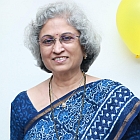
Principal, Dr. Nalini Patil
Director SNDTWU-CHETNA
Member secretory
| Sr. No. | Description |
|---|---|
| 1 | Art of voice over |
| 2 | Basics of Warli and Madhubani painting |
| 3 | Ngo and ledership managemnet |
| 4 | Early childhood education |
| 5 | Nursery school managemnet |
| 6 | Cyber safety-protecting yourself in the digital world |
| 7 | NGO Management |
| 8 | Community organisation & development |
| 9 | Social Entrepreneurship |
| Sr. No. | Description |
|---|---|
| 1 | Orientation to Early Childhood Education |
| 2 | Cake making and Icing |
| 3 | Skills in Home Science |
| 4 | Theme Based Costume jewellery designing & making |
| 5 | Static Website designing |
| 6 | Dynamic website designing |
| 7 | Blouse Construction and ornamentation |
| 8 | Garment Construction and Fabric painting |
| 9 | Dairy Science |
| 10 | Anuvad Kala |
| 11 | Life Skills education |
| 12 | Basic Food Production |
| 13 | First Aid and Helth |
| 14 | Game Programming |
| 15 | Introduction to UI & UX design |
| 16 | Natural Language Processing |
| 17 | Personality Development and communication skills |
| 18 | PHP Programming |
| 19 | Digital Forensics |
| 20 | Basic of Confectionery |
| 21 | Graphic Deslgning using INKSCAPE |
| 22 | Diploma in Computer Applications |
| 23 | German Language |
| 24 | Functional English |
| 25 | Basics of German |
| 26 | Sanskrit Sambhasanam |
| 27 | Hindi Translation |
| 28 | English Communication Development |
| 29 | Advanced Banking and Financial System |
| 30 | Next_Gen Entrepreneurship Development Management |
| 31 | Introduction to Animation |
| 32 | Introduction to Research |
| 33 | Beauty Culture |
| 34 | Loksahitya and Marathi Loksahitya |
| 35 | Mehandi Design |
| 36 | Mobile Application Development |
| 37 | Modi Script |
| 38 | Basic Computers |
| 39 | Effective Communication and Presentation |
| 40 | Fashion Styling |
| 41 | Tally Prime |
| 42 | Wildlife Conservation |
| 43 | Smart Tech |
| 44 | Ethical Hacking |
| 45 | Fundamentals in Computer Application |
| 46 | Practical Counselling Skills across Lifespan |
| 47 | Quantitative Technique |
| 48 | Yogshashtra Shikshan |
| 49 | Jeevan Kaushalya Shikshan |
| 50 | Digital Marketing |
| 51 | Enterprenurship Development |
| 52 | Basic Yoga Course |
| 53 | Somatic Vedic Eduyoga |
| 54 | The world of lippal art |
| 55 | Elements of travel and tourism |
| 56 | School Counselling |
| 57 | Computer Fundamental |
| 58 | Certificate course in retail sales associate |
| 59 | Certificate course in banking and finance services |
| 60 | Certificate Course in E-Taxation (Income Tax) |
| 61 | Certificate Course in Advertising And Branding |
| 62 | Bridge Mathematics |
| 63 | Certificate Course In Tour And Travelism |
| 64 | Diploma in Horticulture |
| 65 | Communication Skills Lab |
| 66 | Communication Skills Lab |
| 67 | Communication Skills Lab |
| 68 | Awareness of FSSAI along with Understanding and Importance |
| 69 | Life Skill training programme for health care professionals |
| 70 | Sustainable Development for teachers educators |
| 71 | Creative Writing |
| 72 | Corporate Communication |
| 73 | Certificate Course in Personality Development |
| 74 | Communication Skills Lab |
| 75 | Gardening course for Sustainable Future |
| 76 | Human Rights |
| 77 | Renaissance of Management |
| 78 | Bachelor of Home Science |
| 79 | Spoken English and Personality development course |
| 80 | Technique Of Screenwriting |
| 81 | Introduction to Video editing |
| 82 | Cultural Program In Value Education |
| 83 | Communication skills in English |
| 84 | Basics of Microsoft Office |
| 85 | Course in Computer Awareness |
| 86 | Employability Skills Development Program Level 1 |
| 87 | Employability Skills Development Program Level 2 |
| 88 | Certificate Course in Advanced Tally with GST |
| 89 | Certificate Course in Affiliate Marketing Mastery |
| 90 | Certificate Course in Mastering YouTube |
| 91 | Basic Computer Certificate LOtlrSE |
| 92 | Certificates Course in English Communication |
| 93 | Certificate Course in Pre - Marital Counseling |
| 94 | Basic Food Production |
| 95 | E content development in education |
| 96 | Lets Connect- Improve your Communication and Personality |
| 97 | The Essential personality and development |
| 98 | International trade documentation |
| 99 | Advertising Concepts Design Process |
SNDTWU-CHETNA Pool of the Courses
Courses in SNDTWU-CHETNA Pool will be categorized as follows:
1. Courses offered by SNDTWU-CHETNA
Add-on credit and noncredit courses that are designed, developed, and offered by the center individually or jointly with another department/institute/ Other State, Central, Deemed & Foreign Universities/other imminent local, national, and international institutes/ Government Institutions/ NGO with the active MOU. For these courses, the center will assess students learning achievement, issue the credit certificate, and recommend to the university to add these credits to students’ ABC.
These courses will be classified as follows:
- Campus-level courses (face-to-face courses)
- Campus-level courses (Blended mode courses)
- Scheduled Online courses open to all
- Self-paced courses open to all
2. Courses recognized by SNDTWU-CHETNA
Add-on credit and noncredit courses that are designed, developed, and hosted by the University department/conducted and affiliated college individually or jointly with another department or institute, that are annually reviewed by SNDTWU-CHETNA subject expert in a given area and approved by SNDTWU-CHETNA Advisory Committee. Also, the center will conduct a final examination to assess students learning achievement, issue the credit certificate, and recommend to the university to add these credits to students’ ABC.
These courses will be classified as follows:
Campus-level courses (face-to-face courses)
Campus-level courses (Blended mode courses)
Scheduled Online courses open to all
Self-paced courses open to all
3. Non-credit certificate courses approved by SNDTWU-CHETNA
Skill-based noncredit certificate courses that are designed, developed, and hosted by the University department/conducted and affiliated college individually or jointly with another department or institute, that is reviewed by SNDTWU-CHETNA subject expert in a given area and approved by CHETANA Advisory Committee to add this course in SNDTWU-CHETNA Pool of the courses. For this course, the host department/College/Institute will assess students learning and issue the course completion certificate.
These courses will be classified as follows:
Campus-level courses (face-to-face courses)
Campus-level courses (Blended mode courses)
University Level scheduled Online courses
University Level self-paced courses
4. Courses recommended by SNDTWU-CHETNA
Add-on courses that are offered by UGC, AICTE, CEC, IGNOU, IIMB NCERT, NIOS, NITTTR, NPTEL through the SWAYAM or any reputed State, national and international Universities or Institutions, and that is reviewed by SNDTWU-CHETNA subject expert in a given area and approved by CHETANA Advisory Committee to add this course in SNDTWU-CHETNA Pool of the courses for all students of the University. For this course, the SWAYAM or concerned University/Institute will assess students learning and issue the credit or course completion certificate. As per the credit transfer policy of SNDTWU university will add these credits to students’ ABC.
Courses
Scope of SNDTWU-CHETNA
The Centre for Holistic Education, Training and Novel Advancements (SNDTWU-CHETNA) will provide greater Autonomy, Flexibility, Access, and Opportunity for Choice to the students. The primary areas of contribution of SNDTWU-CHETNA shall be as follows:
- SNDTWU-CHETNA will develop and offer Value-based or Skill based, Novel, Multidisciplinary, Add-on credit courses, as per the local, national, and international needs.
SNDTWU-CHETNA will Identify the contemporary areas of learning, and accordingly develop the Add-on, Short-term credit and noncredit Multidisciplinary courses in collaboration with reputed local, national and international Institutes/organizations/Industries and well-known expert.
Chetna will create the Pool of Value-based or Skill based, Novel, Multidisciplinary, Add-on short-term Capability Enhancement credit and noncredit courses through local, national, and international collaboration.
- SNDTWU-CHETNA will annually list the Value-based or Skill based, Novel, Multidisciplinary, Add-on short-term Capability Enhancement credit courses that are offered by UGC, AICTE, CEC, IGNOU, IIMB NCERT, NIOS, NITTTR, NPTEL through the SWAYAM, for all students of the University.
Capacity building of university faculty through workshops, training, and short-term courses to create Value-based or Skill based, Novel, Multidisciplinary, Add-on, Short-term Capability Enhancement credit and noncredit courses as per local, national, and global needs.
Conduct research on holistic development, flexible learner-centered pedagogy, and Multidisciplinary courses.
Specialisations
The Centre for Holistic Education, Training and Novel Advancements (SNDTWU-CHETNA) provides specialisation in the following nine areas of education. There are various certificate and degree courses offered in each specialisation.
Organizational Structure
The University established the Centre for Holistic Education, Training and Novel Advancements (चेतना) to fulfill the duties and responsibilities of the University as per section 5 and sub-sections 7,8,46(f),52,60, 74,75,76 of the University Act 2016.
SNDTWU-SNDTWU-CHETNA will work under the Board for Lifelong Learning and Extension to create skilled and learned human power with greater Autonomy, Flexibility, Access, and Opportunity for choice to the students through its various UG, PG degree-level multidisciplinary skills development programmes, and courses.
The Administrative Office of SNDTWU-CHETNA will be located at the Pune Campus of SNDT Women’s University.
Committees of SNDTWU-CHETNA
1. SNDTWU-CHETNA Advisory Committee:
A group of repute academicians and experts in industry identified and nominated by the Vice Chancellor and chaired by the Vice Chancellor with the mandate of identifying the thrust areas of learning for holistic development, examining the course development proposals, and approving them. The Director of SNDTWU-CHETNA will be the Member Secretary of this committee.
Structure of the SNDTWU-CHETNA Advisory Committee
Vice Chancellor – Chairperson
Pro-Vice Chancellor – Member
Four Deans – Members
Finance and Accounts Officer – Member
Director of Examination and Evaluation – Member
Director of Lifelong Learning and Extension – Member
Four External Expert – Members
Three Representative of Conducted, Affiliated, Autonomous colleges – Members
SNDTWU-CHETNA Coordinator – Member
SNDTWU-CHETNA Director – Member secretary
2. SNDTWU-CHETNA Finance Committee :
SNDTWU-CHETNA finance committee will be responsible to monitor income and expenditure, prepare budget, prepare Income expenditure statement at the end of each financial year.
Structure of SNDTWU-CHETNA Finance Committee
Vice-Chancellor: Chairperson
Pro-Vice chancellor – Member
Finance and Accounts Officer – Member
Director of Lifelong Learning and Extension – Member
Coordinator SNDTWU-CHETNA – Member
SNDTWU-CHETNA Campus Coordinator of respective campus – Members
Director SNDTWU-CHETNA – Member Secretary
3. SNDTWU-CHETNA Expert Committee:
A group of experts (Subject Matter, Pedagogy, Technology) belonging to a reputed educational institution/Industry or a specialist in a given area, who are nominated by the Vice-chancellor with the advice of SNDTWU-CHETNA Director and chaired by the Director SNDTWU-CHETNA. The board will be responsible to review the course proposals and recommend the courses in different categories for approval. The SNDTWU-CHETNA coordinator will be the Member Secretary of this committee.
Structure of SNDTWU-CHETNA Expert Committee
- SNDTWU-CHETNA Director: Chairperson
03 Subject Experts: Members (Vice-chancellor will be nominated 3 subject experts with the advice of SNDTWU-CHETNA Director)
Coordinator SNDTWU-CHETNA – Member Secretary
4. SNDTWU-CHETNA Fee Review Committee:
The committee will be responsible to review the proposed course fee structure and accept/approve the same.
Structure of SNDTWU-CHETNA Fee Review Committee
SNDTWU-CHETNA Director: Chairperson
Finance and Accounts Officer: Members
SNDTWU-CHETNA Coordinator: Member
03 Subject Experts: Members (Vice-chancellor will be nominated 3 subject experts with the advice of SNDTWU-CHETNA Director)
SNDTWU-CHETNA Campus Coordinator of respective campus: Member Secretory
Functioning of SNDTWU-CHETNA Fee Review Committee:
SNDTWU-CHETNA Campus coordinator will forward the proposed course fees structure to SNDTWU-CHETNA Fees Review Committee after course approved by Course Review Committee.
Chief Coordinator will call the meeting of fees review committee twice in the year preferably March-April and Aug- Sept
SNDTWU-CHETNA Fee Review Committee will review the proposed fees according to the budgetary provisions of the course, if it is justifiable committee will approve fees structure for upcoming year.
If proposed fee structure is not justifiable It will send back with note of suggestions. After duly justify the fee structure will be approved by SNDTWU-CHETNA Director (subject to post approval of committee).
5. SNDTWU-CHETNA Course Review Committee:
A dynamic group of course reviewers belonging to a reputed educational institution/Industry or a specialist in a given area, who are nominated by the Vice-chancellor. The committee will be responsible to review the received course proposals with respect to relevance with SNDTWU-CHETNA mandate, expected course outcomes, content (Syllabus and assessment plan), Pedagogical approach and clarity in course deployment policy.
Structure of the SNDTWU-CHETNA Course Review Committee:
SNDTWU-CHETNA Coordinator: Chairperson
03 Subject Experts: Members (Vice-chancellor will be nominated 3 subject experts with the advice of SNDTWU-CHETNA Director from panel of experts)
SNDTWU-CHETNA Campus Coordinator of respective campus: Member Secretory
Functioning of Course Review Committee:
The Campus Coordinator will send all the course proposals for review to all three experts of the concerned subject after receiving the review report will convene an online meeting of that Course Review Committee for final discussion on the proposals.
After thorough discussion satisfying course proposals will be send to the Fee Review Committee to review the proposed fee structure.
Finally, the proposals which meet both levels satisfactorily will be sent to the Expert Committee for kind consideration.
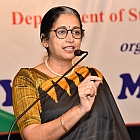
Prof. Ujwala Chakradeo
Hon’ble Vice Chancellor, SNDT Women’s University, Mumbai
Chairperson
vc@sndt.ac.in
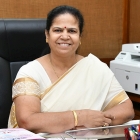
Prof. Ruby Ojha
Pro-Vice Chancellor, SNDT Women’s University, Mumbai
Member
khapre.pvc@sndt.ac.in

Smt. Uma Grirish Khapre
Member, Maharashtra Legislative Council
Member
khapre.uma@gmail.com

Smt. Pournima Mehata
Entrepreneur & Social worker
Member
poonam1959@yahoo.com

Mr. Mahesh Anant Dabak
Member of NITI Aayog, Education Subcommittee formed by Govt. of India
Member
mahesh.dabak@gmail.com

Shri Ashish Pandey
Shailesh J. Mehta School of Management, Indian Institute of Technology (I.I.T.) Bombay
Member
ashish.pandey@iitb.ac.in
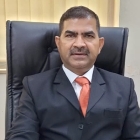
Dr. Vilas Nandavadekar
Registrar, SNDT Women’s University, Mumbai
Member
registrar@sndt.ac.in

Mr. Vikas Desai
Finance And Accounts Officer, SNDT Women’s University, Mumbai
Member
fao@sndt.ac.in

Prof. Medha Tapiawala
Dean, Faculty of Humanities, SNDT Women’s University, Mumbai
Member
humanities@dean.sndt.ac.in
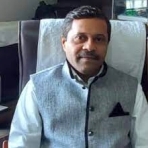
Prof. H. T. Jadhav
Dean, Faculty of Science and Technology, SNDT Women’s University, Mumbai
Member
sciencetechnology@dean.sndt.ac.in
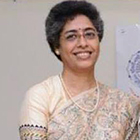
Prof. Jayashree Shinde
Dean (Addl. Charge), Faculty of Inter-Disciplinary Studies, SNDT Women’s University, Mumbai
Member
interdisciplinary@dean.sndt.ac.in
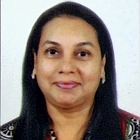
Dr. Shobha Dedhia
Dean (Addl. Charge), Faculty of Commerce and Management, SNDT Women’s University, Mumbai
Member
commercemanagement@dean.sndt.ac.in
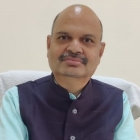
Dr. Sanjay R. Nerkar
Director, Board of Examinations and Evaluation, SNDT Women’s University, Mumbai
Member
doee@sndt.ac.in
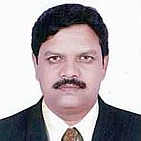
Dr. Prabhakar Chavan
Director, Lifelong Learning And Extension, SNDT Women’s University, Mumbai
Member
caee@sndt.ac.in
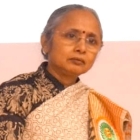
Dr. Pradnya Wakpainjan
Director, Board of Examinations and Evaluation, (Additional Charge)
Member
iqac@sndt.ac.in

Dr. Menon Asha Mahesh
Principal, Smt. PN Doshi Women’s College, Ghatkopar
Member
principalspndoshi@gmail.com
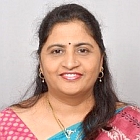
Dr. Sheetal More
HOD, Department of Music, SNDT Women’s University, Pune
Member
smore@musicpune.sndt.ac.in

Dr. Mahesh Koltame
SNDTWU-CHETNA Campus coordinator, Churchgate, Mumbai
Member
coordinator.churchgate@chetna.sndt.ac.in
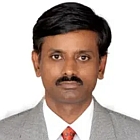
Dr. Sanjay Shitole
SNDTWU-CHETNA Campus coordinator, Juhu, Mumbai
Member
coordinator.juhu@chetna.sndt.ac.in
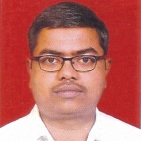
Dr. Bhaskar Igave
SNDTWU-CHETNA Campus coordinator, Pune
Member
coordinator.pune@chetna.sndt.ac.in

Principal, Dr. Nalini Patil
Director SNDTWU-CHETNA
Member secretory
director@chetna.sndt.ac.in

Prof. Ujwala Chakradeo
Hon’ble Vice Chancellor
Chairperson

Prof. Ruby Ojha
Pro-Vice Chancellor
Member

Mr. Vikas Desai
Finance And Accounts Officer
Member

Dr. Prabhakar Chavan
Director, Lifelong Learning And Extension
Member
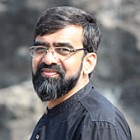
Prof. Sachin Deore
Coordinator SNDTWU-CHETNA,
Member

Dr. Sanjay Shitole
SNDTWU-CHETNA Campus coordinator, Juhu,
coordinator.juhu@chetna.sndt.ac.in

Dr. Bhaskar Igave
SNDTWU-CHETNA Campus coordinator, Pune
Member

Dr. Mahesh Koltame
SNDTWU-CHETNA Campus coordinator, Churchgate
Member

Principal, Dr. Nalini Patil
Director SNDTWU-CHETNA
Member Secretory
SNDTWU-CHETNA Director: A person who has been appointed by the Vice-chancellor of the university and shall work directly under the directions and control of the vice-chancellor. She/He shall discharge his functions under the superintendence, direction, and guidance of the Advisory Committee and who will be responsible for the execution of Advisory Committee resolutions and smooth functioning of the center.
SNDTWU-CHETNA Coordinator: A person who has been appointed by the Vice-chancellor of the university and shall work directly under the directions and control of the Director SNDTWU-CHETNA, who will be responsible for the coordination and communication with the Heads, Principals, and Course Coordinators with the help of campus coordinators.
SNDTWU-CHETNA Administrative Coordinator: A person who has been appointed by the Vice-chancellor of the university and shall work directly under the directions and control of the Director SNDTWU-CHETNA, who will be responsible for the administrative coordination in SNDTWU-CHETNA office bearers and staff.
SNDTWU-CHETNA Campus Coordinators: A person/s who has been appointed by the Vice-chancellor at all the campuses of the university and shall work directly under the directions and control of the Director SNDTWU-CHETNA, who will be responsible for the smooth coordination and communication with the Heads, Principals, and Course Coordinators/facilitators as per the guidance of SNDTWU-CHETNA coordinator.
SNDTWU-CHETNA College/Institute Coordinator: A faculty member who has been appointed by the Principal/Director, of the host College/Institute for the specific course or courses. The course Coordinator will be responsible for student enrolment, proper implementation of the course, students’ progress tracking, and conveying student enrolment and progress data to SNDTWU-CHETNA portal.
SNDTWU-CHETNA Course Director: A Principal/ Director of the course offering institute, who will facilitate students learning through administrative, infrastructural support and supporting the final exam conducted by SNDTWU-CHETNA.
SNDTWU-CHETNA Course Coordinator/Author/facilitator: A faculty member belonging to the course offering institute, who has developed the course, and facilitates students learning through mentoring, teaching, assessment, and supporting the final exam conducted by SNDTWU-CHETNA.

Principal, Dr. Nalini Patil
Director SNDTWU-CHETNA
Member Secretory

Prof. Sachin Deore
Coordinator SNDTWU-CHETNA,
Member

Dr. Mahesh Koltame
SNDTWU-CHETNA Campus coordinator, Churchgate
Member

Dr. Sanjay Shitole
SNDTWU-CHETNA Campus coordinator, Juhu,
coordinator.juhu@chetna.sndt.ac.in

Dr. Bhaskar Igave
SNDTWU-CHETNA Campus coordinator, Pune
Member
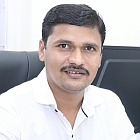
Dr. Balu Rathod
SNDTWU-CHETNA Administrative Coordinator
The functioning of SNDTWU-CHETNA
1. Process of SNDTWU-CHETNA Course development
Every year Advisory Committee will Identify the contemporary multidisciplinary thrust areas and the Suitable Course Coordinators for these areas. Course Coordinators will be a regular faculty and Subject Expert belonging to a university department or conducted college. Also, he/she should be a specialist in the identified area. Also, she/he will be entrusted with the task of developing and conducting an online or f2f course in a given area.
Parallelly, SNDTWU-CHETNA will call the collaborative course development proposals from a Subject Expert belonging to an affiliated college and other reputed educational institution/Industry or a specialist in the field identified and entrusted with the task of developing an online course in a given area.
2. Process of adding courses into the SNDTWU-CHETNA Pool of courses
Every year in January-February and June-July, SNDTWU-CHETNA invites course proposals to be added to the SNDTWU-CHETNA Pool of courses to make available for the next semester/ academic year. In March and August course proposals will be reviewed by the course review committee and sent to the Expert committee for a recommendation. After the Expert committee recommendation course will be approved by Advisory Committee and added to the SNDTWU-CHETNA Pool of courses for the upcoming semester/ academic year.
The recognition of the course will be valid for one year only. Course recognition will be renewed after reviewing the course data and students’ satisfaction survey.
3. Course delivery mechanism
Courses offered by SNDTWU-CHETNA: Every year SNDTWU-CHETNA will develop courses on identified trust arias and will be made available in F2F, online and blended (synchronous and asynchronous) mode through LMS. For these courses, Students can enroll themselves through SNDTWU-CHETNA Portal as per the pre-declared enrollment policy of this course and the enrollment rules of the Department of lifelong learning and Extension. After admission confirmation by the SNDTWU-CHETNA Director student will be registered on LMS for the desired course as a learner.
Courses recognized by SNDTWU-CHETNA and hosted by other institutions: Courses recognized by SNDTWU-CHETNA and Hosted by other institutions conducted or affiliated by university will be made available as per the pre-declared course policy. Hoste institute can conduct courses through F2F at the campus level or Blended (F2F and asynchronous) at the campus level or Online Blended (synchronous and asynchronous) Or Self-paced mode. For these courses, Students will be enrolled by the Host institute as per their pre-declared enrollment policy and the enrollment rules of Department of lifelong learning and Extension.
Courses recommended by the SNDTWU-CHETNA: For this type of course students themselves have to register as per the concerned institutions admission policy. Students should complete the course at their own level.
4. Assessment examination and Certification
Assessment:
The courses offered, recognized by SNDTWU-CHETNA will adopt a continuous comprehensive assessment approach and accordingly, 60/40 weightage for formative and summative assessment (60% Formative and 40% summative) will be given.
For successful completion of the course, students have to achieve 50% marks in both types of assessments separately.
Examination:
For students who are willing to earn a course completion certificate with credit, an objective type online examination of 10 marks per credit will be conducted by SNDTWU-CHETNA at the end of the course to award a credit certificate. And those who are willing to earn only course completion certificate for them host institute will conduct a course end test and send the assessment data to SNDTWU-CHETNA for the certificate.
Certification:
For courses offered and Recognized by SNDTWU-CHETNA, SNDTWU-CHETNA will award two types of certificates as per the choice of the students.
Course completion certificate (without credit):
Students who are not willing to appear external exam conducted by SNDTWU-CHETNA to earn a credit certificate, will be awarded a course completion certificate based on their grades or marks that she has earned in the formative assessment task along with the course end summative assessment test conducted by the host institute.
Course completion certificate with credit:
Students who are willing to earn a course completion certificate with credits have to appear in the course end summative external exam that will be conducted by SNDTWU-CHETNA to fulfill the requirements of course completion. Those students who have successfully completed all the requirements of course completion will be awarded a Course completion certificate with credit and will recommend to the university to add their credits to their ABC.
Fee structure of SNDTWU-CHETNA
Courses offered by SNDTWU-CHETNA:
SNDTWU-CHETNA registration fees- 20 per student for SNDTWU Students and 100 for other than SNDTWU leaners (One time).
Course fee (As per budgetary provision of the course and Approved by the Fee review committee): —– per student
Assessment and evaluation Certification Fee: 50 per course (Digital certificate)
Courses recognized by SNDTWU-CHETNA:
SNDTWU-CHETNA registration fees- 20 per student for SNDTWU Students and 100 for other than SNDTWU learners (One time).
Course recognition fee (Reviewing and monitoring the course to maintain the standard of the course) as follows:
| Nature of the course | 4 Credit Course | 2 Credit course | 1 Credit course | Non credit Certificate course |
|---|---|---|---|---|
| Face to face | 4000/- per year | 2000/- Per year | 1000/- Per year | 2000/- per year |
| Blended | 4000/- per year | 2000/- Per year | 1000/- Per year | |
| Online | 4000/- per year | 4000/- per year | 1000/- Per year |
Assessment and evaluation & Certification Fee: 50 per student (Optional, if candidates opted credit transfer facility) (Digital certificate)
Courses offered by SNDTWU-CHETNA in collaboration with Local, National, International level Institutes/NGO’s/ An expert in a particular field:
SNDTWU-CHETNA registration fees- 20 per student for SNDTWU Students and 100 for other than SNDTWU leaners (One time).
Course fee (As per budgetary provision of the course and Approved by the Fee review committee)
Distribution of Fees in Both parties will be as follows:
| Role | Share % of the Course fee to the First party | Share % of the Course fee to the second party | |
|---|---|---|---|
| First party (SNDTWU) | Second Party | ||
| Design, develop, conduct, evaluate and certify course with own resources. | Providing expertise in a specific field, providing academic and field-related support to execute a course | 80% | 20% |
| Providing academic consultancy to design, development and conduct the course. Conduct final evaluation and issue the certificate. | Design, develop, conduct, course with own resources. | 40% | 60% |
List of Collaborations
| Sr. No. | Collaborations |
|---|---|
| 1 | University Departments and Constituent Colleges |
| 2 | Other State, Central, Deemed & Foreign Universities |
| 3 | Government Institutions |
| 4 | External Organisations |
| 5 | NGOs |
| 6 | Skill Development Centres |
| 7 | International Institutions |
| 8 | Online Platforms/Applications |
| 9 | Artists, Subject Experts from across the globe |
Contact Us
For any queries please contact:
SNDTWU-CHETNA
SNDTWU-CHETNA Director
SNDTWU-CHETNA Campus Coordinator, Churchgate
SNDTWU-CHETNA Campus Coordinator, Juhu
SNDTWU-CHETNA Campus Coordinator, Pune
Programmes
Ph.D. in Women’s Studies
M.A. in Women’s Studies
Head of Department
Prof. Ruby Ojha
Director of the Research Centre for Women’s Studies)
Dr. Putul Sathe (Associate Professor)
Dr. Vatsala Shoukla (Assistant Professor)
Contact: +91-22-2661 0751
Email : rcws@sndt.ac.in
Website:http://www.rcwssndt.org
Research Centre for Women’s Studies,
SNDT Women’s University,
Sir Vithaldas Vidyavihar,
Juhu Road, Juhu,
Mumbai – 400 049

